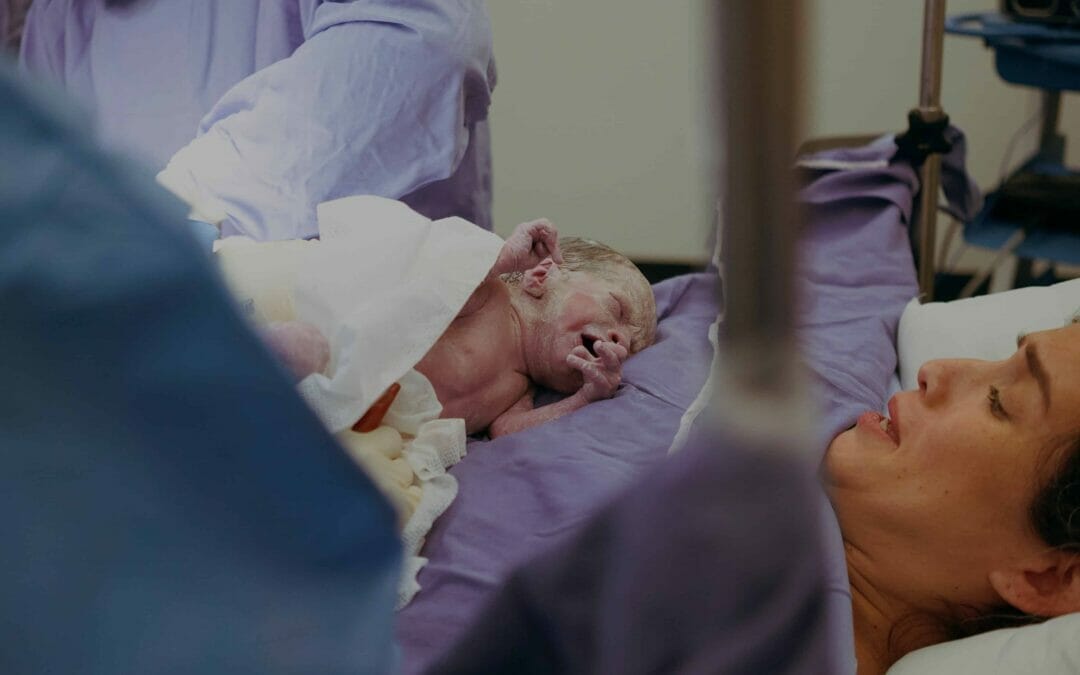Once your baby is born, you will likely take a huge breath of relief and congratulate yourself on a job well done. However, those around you will still be hustling to ensure that your baby is getting the best care possible during those first few important days of life. One of the tasks that they perform is a series of tests to check for disorders or illnesses that could cause long term problems or mortality. Not all states test for the same diseases, so you may want to ask your health care practitioner what standard tests are done before you baby is born, so you can request additional testing is needed.
30 Tests That Should Be Performed on a Newborn
There are currently newborn tests for approximately 30 disorders (according to the March of Dimes), but not all states will test for all disorders. Here is a list of the disorders that should be tested:
-
3-Methylcrotonyl-CoA carboxylase deficiency (3MCC)
-
3-OH 3-CH3 glutaric aciduria (HMG)
-
Argininosuccinic acidemia (ASA)
-
Beta-ketothiolase deficiency (BKT)
-
Biotinidase deficiency (BIOT); test positive in 1 of 60,000 newborns
-
Carnitine uptake defect (CUD)
-
Citrullinemia(CIT)
-
Congenital adrenal hyperplasia (CAH); tests positive in 1 of 19,000
-
Congenital hypothyroidism (HYPOTH); tests positive in 1 of 3,000
-
Cystic fibrosis (CF) currently 30,000 children and adults affected in the United States
-
Galactosemia (GALT); tests positive in 1 of 50,000
-
Glucose-6-phosphate dehydrogenase deficiency (G6PD)
-
Glutaric acidemia type I (GA I)
-
Hb S/Beta-thalassemia (Hb S/Th)
-
Hb S/C disease (Hb S/C)
-
Hearing deficiency; tests positive in 3-4 of 1,000
-
Homocystinuria (HCY); tests positive in 1 of 350,000
-
Isovaleric academia (IVA)
-
Long-chain L-3-OH acyl-CoA dehydrogenase deficiency (LCHAD)
-
Maple syrup urine disease (MSUD); tests positive in 1 of 230,000
-
Medium chain acyl-CoA dehydrogenase deficiency (MCAD)
-
Methylmalonic acidemia (Cbl A,B)
-
Methylmalonic acidemia (mutase deficiency) (MUT)
-
Multiple carboxylase deficiency (MCD); tests positive in 1 of 20,000
-
Phenylketonuria (PKU); tests positive in 1 of 14,000
-
Propionic acidemia (PROP)
-
Sickle cell anemia (SCA); Affects as many as 1 in 400 African Americans and also affects those from Hispanic, Mediterranean, Middle Eastern and South Asian descent in lower frequency
-
Trifunctional protein deficiency (TFP)
-
Tyrosinemia type I (TYR I)
-
Very long-chain acyl-CoA dehydrogenase deficiency (VLCAD)
Common disorder that are tested for include: Phenylketonuria (PKU), Congenital Hypothyroidisim, Galactosemia, Maple Syrup Urine Disease, Homocystinuria, Biotinidase, Sickle Cell Disease, Congenital Adrenal Hyperplasia and Cystic Fibrosis. However, it should be noted that in all cases repeat testing be done 1 to 2 weeks after birth, if the initial test was done before the baby was 24 hours old.
State-Required Testing
Every state has different requirements on what types of tests they will run on newborns. You can see a full list of tests per state at the National Newborn and Genetics Resource Center. These tests are required by each state and are mandatory for children born in that state. If for some reason you do not want the tests performed you should discuss it with your health care provider.
How Are The Tests Performed?
The blood is drawn using a heel-stick test (a prick to the heel) either before the baby and mother are discharged from the hospital or within the first few days after birth. According to the March of Dimes there are timelines where it is best to perform the tests. Optimally the baby is 3-5 days old, or at least 24 hours have passed since the birth. Tests done less than 24 hours after birth will yield limited results. Usually you will not be notified if the tests are negative. If any tests come back positive you will be contacted for further testing. Keep in mind that on occasion tests come back as a false positive, especially if the test was done too early.
Additional Testing
Most tests performed by hospitals are mandated because they have a low risk and are covered by insurance, and they also test for common infant afflictions. There may be other tests that your health care provider recommends due to various reasons:
-
Previous child affected
-
History of infant mortality
-
High risk for ethnicity
-
Family history
-
Premature birth
If there are tests that you feel are necessary, but your health care provider does not wish to perform them due to a low risk, you can order your own test from hospitals or laboratories and have your health care provider give you an additional blood sample.
More Information
Details about additional testing is available at savebabies.org, or you can call any of the following: Baylor Medical Clinic 1-800-4-BAYLOR (1-800-422-9567) Mayo Medical Laboratories 1-800-533-1710 You can order kits from the clinics above that test for 30-35 disorders and they cost $25-77. To learn more about various medical disorders go to www.marchofdimes.com or National Newborn and Genetics Resource Center.
If you are still in the planning stages of having a baby you may want to learn more about genetic testing.

